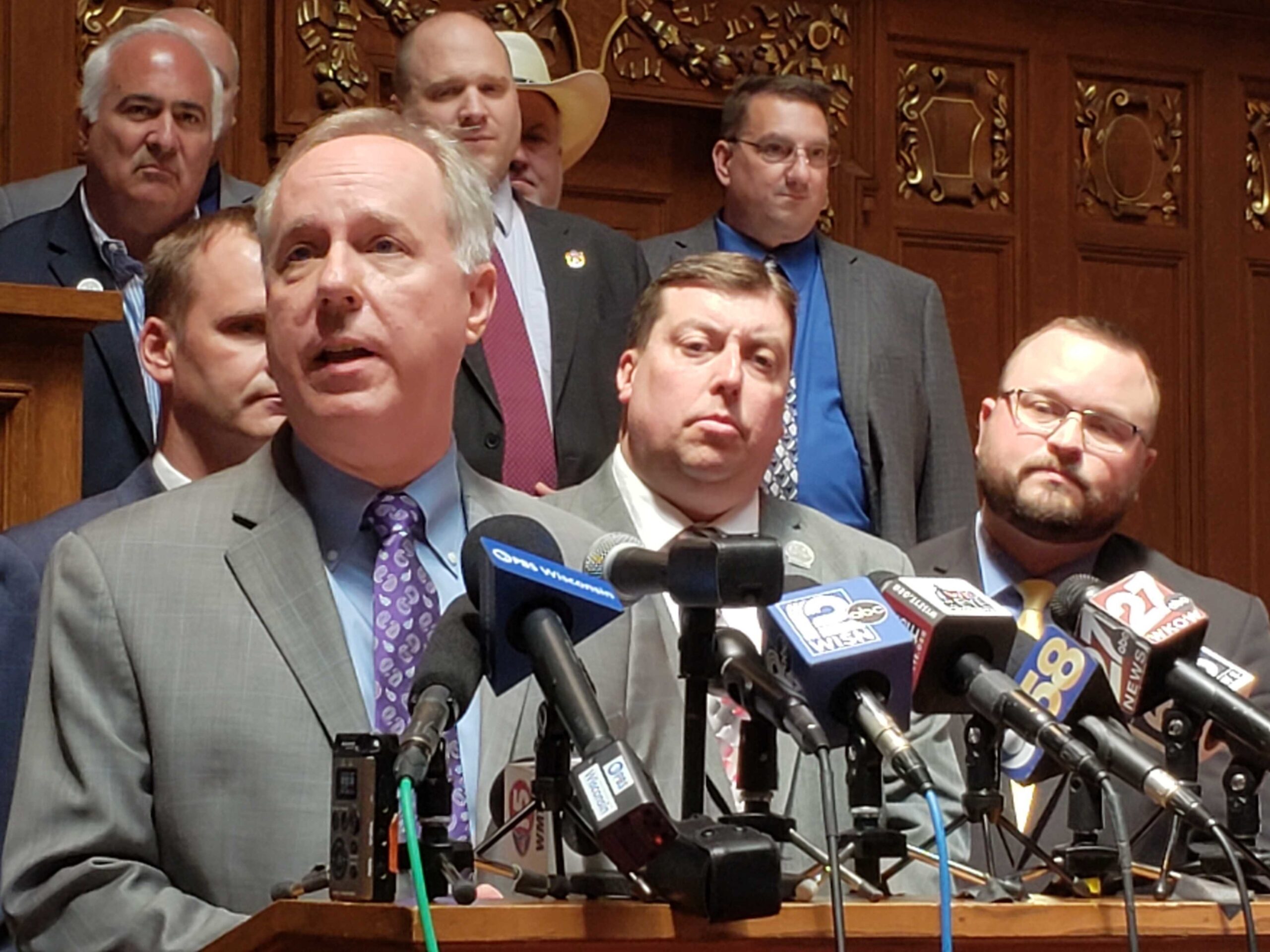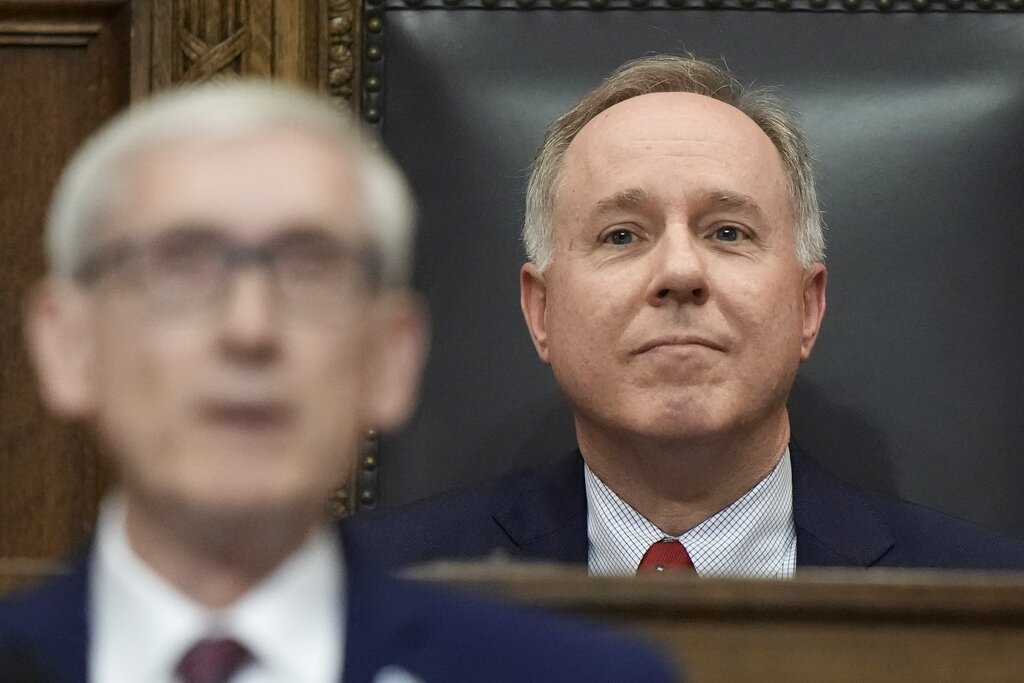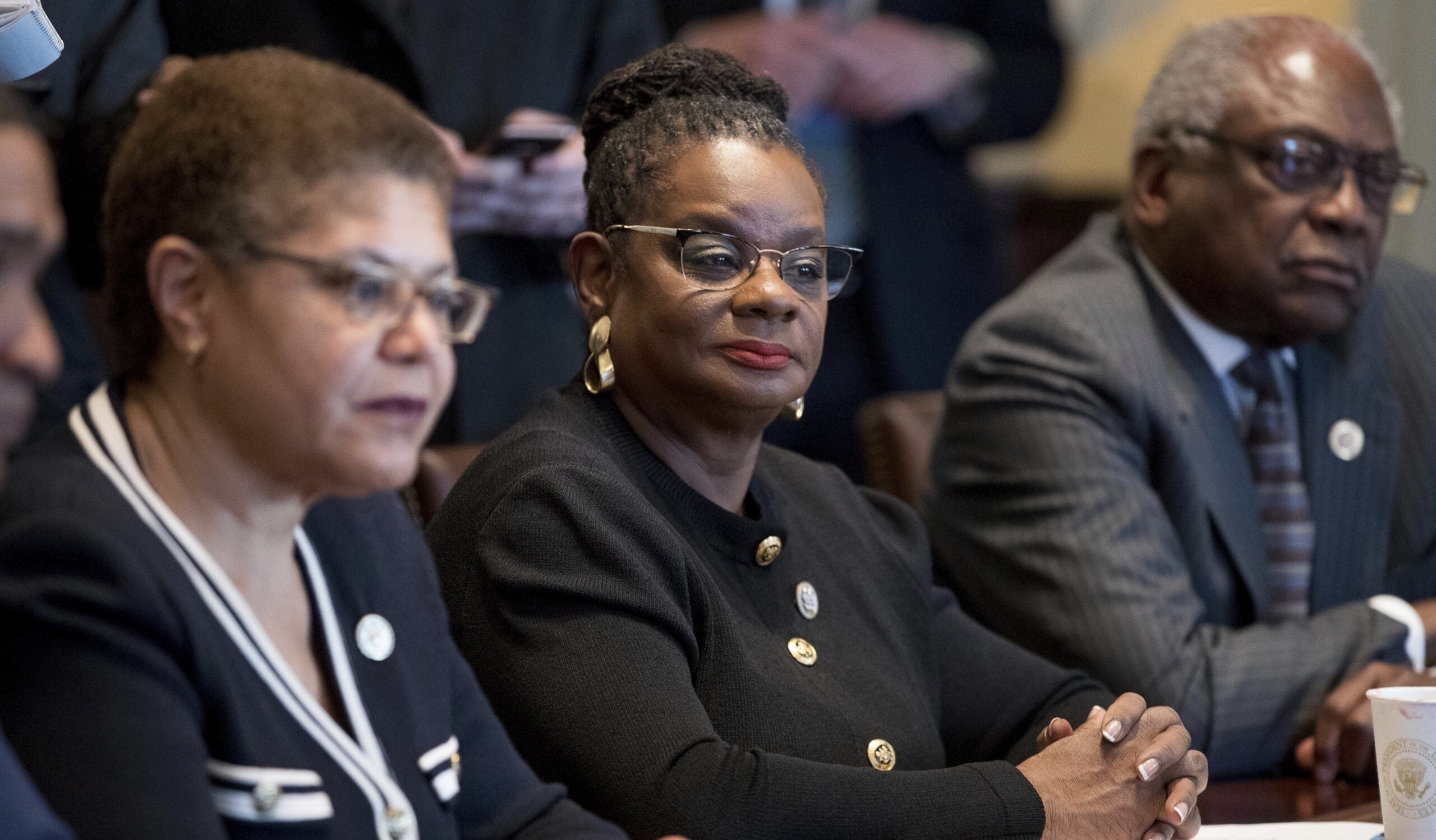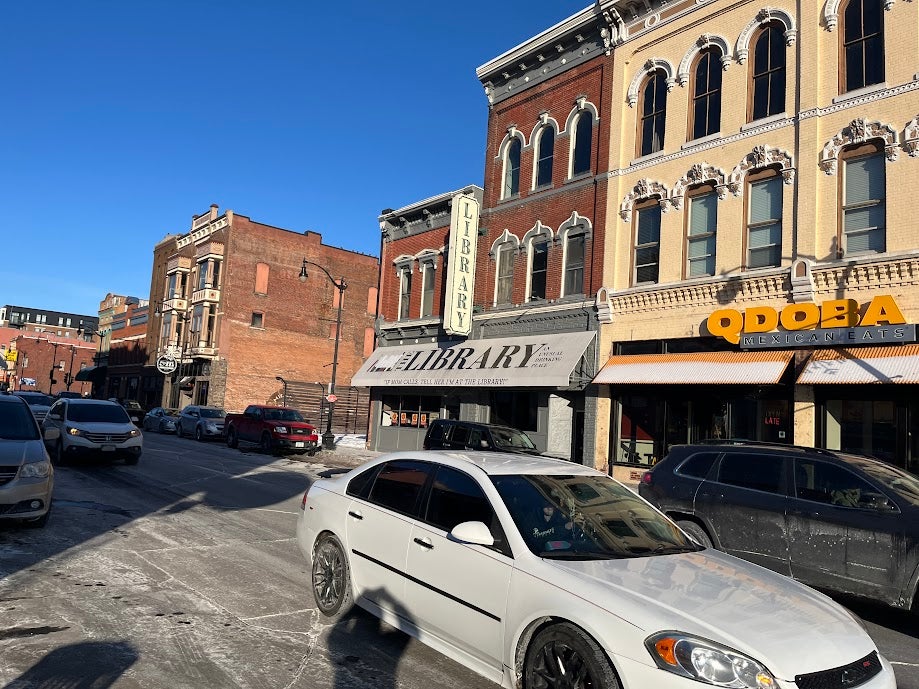The city of Milwaukee and Milwaukee County would be allowed to raise their local sales taxes without getting voter approval first under a sweeping deal announced Thursday by Republican legislative leaders and Democratic Gov. Tony Evers.
The plan would also boost state funding to local governments by even more than previously announced and pledge $1 billion for schools that would be funded by a mix of state aid and local property taxes.
The deal would resolve an impasse that as recently as Wednesday appeared as though it could threaten an otherwise broad agreement to overhaul local government funding, particularly for Milwaukee.
News with a little more humanity
WPR’s “Wisconsin Today” newsletter keeps you connected to the state you love without feeling overwhelmed. No paywall. No agenda. No corporate filter.
“For too long, our communities have been asked to do more with less, and this agreement is critical to ensure our local partners have the resources they need to meet basic and unique needs alike,” read a written statement from Evers, praising the deal.
Like Evers, Republicans, who held their own press conference Thursday, called the deal “transformational.”
“Today is one of those opportunities where each side brought their best ideas to the table,” said Assembly Speaker Robin Vos, R-Rochester.

By far the biggest sticking point in negotiations on the deal involved whether to require a referendum to let Milwaukee raise its sales taxes.
Under the deal announced by Evers and Republicans, the city of Milwaukee and Milwaukee County could raise their sales taxes with two-thirds votes by the city’s Common Council and the County Board.
The city’s sales tax could go up by 2 percent. The county’s could go up by 0.4 percent, up from 0.375 percent in earlier versions of the bill.
Milwaukee Mayor Cavalier Johnson, who warned lawmakers that his city could have to cut hundreds of police officers without the sales tax provisions, said in a statement that he would work with the city’s common council to address their questions and encourage their approval.
“As we approach the finish line, our top objective is within sight,” Johnson said. “We have a proposed remedy to the fiscal challenges Milwaukee faces.”
The bill the Assembly passed last month would have required referendums for the Milwaukee sales taxes, a position Vos described as a bottom line when he announced Assembly Republicans were “done negotiating.”
Asked Thursday why he went back to the table, Vos said circumstances had changed.
“Sometimes the offer and the opportunity to get wins for things you believe in are so good, you have to change your mind,” Vos said.
Specifically, Vos cited the increased funding for voucher schools in the deal reached between Republicans and Evers. Those amounts would go up by about $1,100 for private voucher school students in grades K-8 and for nearly $3,000 for those in high school. Charter school students would see an increase of about $1,700 while per pupil funding for Wisconsin’s special needs scholarship program would go up by about $1,600.
Total spending on public school students would still be higher and it would also go up, by $325 next school year and another $325 the year after that.
Other school initiatives would also be funded. It would dedicate $50 million in state funds to improve literacy and learning and $30 million for school-based mental health. Special education funding would also be increased slightly, with the state picking up 33 percent of total costs.
The deal would also boost state funding to local communities by at least 20 percent for almost every municipality, up from a 10 percent floor in the original bill introduced by Republicans and 15 percent in the plan that passed the state Assembly.
“It’s just really exciting that we got to this point,” said Senate Majority Leader Devin LeMahieu, R-Oostburg, who called the proposal “historic.”
LeMahieu, who said last week that he did not yet have the votes to pass the bill without the MIlwaukee referendum provision, said Thursday that he hadn’t had a chance yet to talk to his members about the agreement.
“I’m not concerned,” LeMahieu said. “We’re going to talk to all the lawmakers, all the members of our caucus. And I talked to the minority party, and I think some of them will get there. And I think it’ll be a good day, a bipartisan win.”
At their press conference, Republicans promoted other provisions in the bill which remain unchanged, many of which would override decisions by local governments. They include a measure to bring armed police back into Milwaukee Public Schools, a ban on using state funding in the bill on Milwaukee’s street car and provisions that would discourage local governments from cutting police.
Other provisions backed by GOP lawmakers would restrict local government Diversity, Equity and Inclusion efforts, known as DEI, and put limits on the powers of local public health officers and repeal the state’s personal property tax.
Both houses of the Legislature could vote on the plan June 14.
Wisconsin Public Radio, © Copyright 2026, Board of Regents of the University of Wisconsin System and Wisconsin Educational Communications Board.







